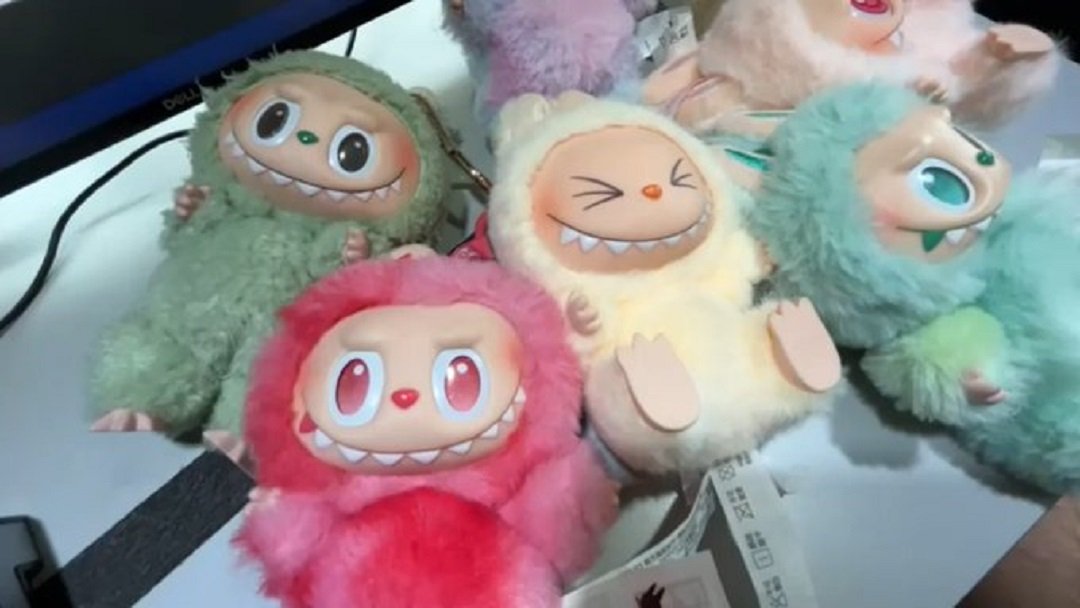Labubu Doll Craze: The Truth Behind the Viral Collectible Trend
In recent months, the Labubu Doll Craze has swept across the globe, captivating celebrities, collectors, and casual buyers alike. What appears to be a “cute but creepy” toy has ignited debate, controversy, and an incredible resale market worth thousands of dollars. But what’s the real story behind this oddly adorable doll?
What is the Labubu Doll?
The Labubu Doll is a unique collectible figure that blends a spooky yet endearing appearance. With sharp teeth, quirky facial expressions, and imaginative costumes, it represents a design style known as “ugly-cute” or “Aloshi-style”.
Originally created in 2015 by Belgian-based artist Kasing Lung, Labubu first appeared in the art book series “The Monsters”. The character gained traction when Chinese collectible toy giant Pop Mart launched it as part of their blind box collectible series in 2019.
Why is the Labubu Doll So Popular?
🧸💰 Inside the #Labubu craze: How a ‘weird doll’ added $1.6 billion to #PopMart CEO’s #wealth 📈🎉 | https://t.co/DXGA4Kw2RE pic.twitter.com/QebtoACa05
— Economic Times (@EconomicTimes) June 26, 2025
1. Blind Box Strategy Creates Hype
Pop Mart used the blind box marketing model, where customers buy a sealed box without knowing which version of the toy is inside. This model mimics gambling, as buyers hope to score a rare or limited edition Labubu—some of which resell for $500 to over $10,000 in black markets.
The company cleverly markets every 72nd box to contain a rare version, driving obsessive purchasing habits and skyrocketing demand.
2. Celebrity Endorsement and Social Media Hype
Labubu received an early boost from global celebrities like Rihanna, Dua Lipa, Lisa from BLACKPINK, Kim Kardashian, and even David Beckham, who were seen publicly with the doll. These endorsements triggered a viral response, pushing people to explore and collect Labubu figures.
3. Creative and Limited Editions Fuel Collector Frenzy
Each Labubu doll comes in different themes: astronaut, superhero, animal costumes, etc. This wide variety, along with Pop Mart’s limited edition runs, turns the doll into a status symbol and investment.
Collectors from China, Hong Kong, Japan, Pakistan, India, and now the global market are snapping up these figures, increasing resale value and exclusivity.
The Business Behind the Craze
Labubu mania has taken over social media, after Lisa from BLACKPINK first posted her love for the adorable toys. Now other celebrities are joining the craze! https://t.co/TgaduOdQDe pic.twitter.com/ZRjw6R7K6k
— E! News (@enews) June 13, 2025
Pop Mart has turned this collectible into a billion-dollar business, with:
$1.8 billion in total sales
$480 million from IP-specific sales alone
The intellectual property (IP) strategy ensures that only licensed vendors can sell Labubu figures, adding legal value and protection. Like Marvel’s Iron Man or Spider-Man, Labubu has its own IP rights, which generate royalties for the original creator.
Islamic Perspective: Is the Labubu Doll Haram?
Many viral claims on social media suggest the Labubu doll is “satanic” or brings evil spirits into the home. However, there is no scientific or religious proof supporting this.
Is It Connected to Evil Spirits?
According to Islamic scholars and teachings:
The doll itself is a fictional character, like any superhero or cartoon.
It does not promote shirk (polytheism) or contain any religious content.
Associating it with demons is baseless superstition (toham parasti), which Islam strongly condemns.
What Makes It Haram?
While Labubu is not satanic, Islamic scholars argue it is haram due to the gambling element in the blind box purchase model. Here’s why:
The blind box strategy mimics gambling (juwa), as you don’t know what you’re getting.
It creates addiction and unhealthy financial behavior, especially among youth.
Islam forbids anything that damages your belief or finances, even in subtle forms.
So while the doll isn’t evil in itself, the purchase model violates Islamic principles.
Conclusion: Is the Labubu Doll Craze Justified?
The Labubu Doll Craze is a brilliant example of smart marketing, psychological tactics, and collector culture. Pop Mart’s combination of exclusivity, celebrity backing, and gambling-like mechanics has created a worldwide phenomenon.
From a secular perspective, it’s a collectible toy turned luxury item. From an Islamic lens, the blind box model makes it problematic—not the character itself.
Final Thoughts:
If you’re a collector, buy responsibly.
If you’re concerned about religious beliefs, avoid gambling-based purchase models.
Don’t fall for baseless superstitions—always seek knowledge and evidence.



Good efforts 😀 you are doing amazing work keeping its up 💯💪
Онлайн-консультация с психологом — это ваш шанс на перемены.
Не упустите возможность! https://vk.com/club211532114